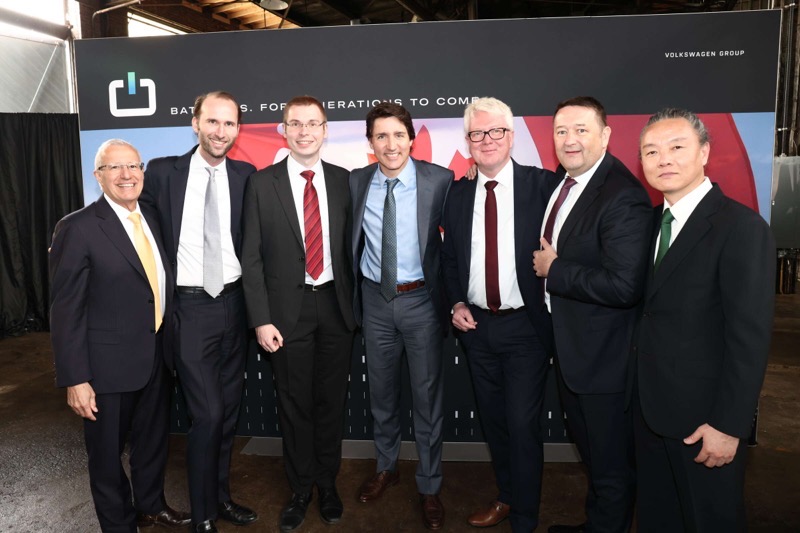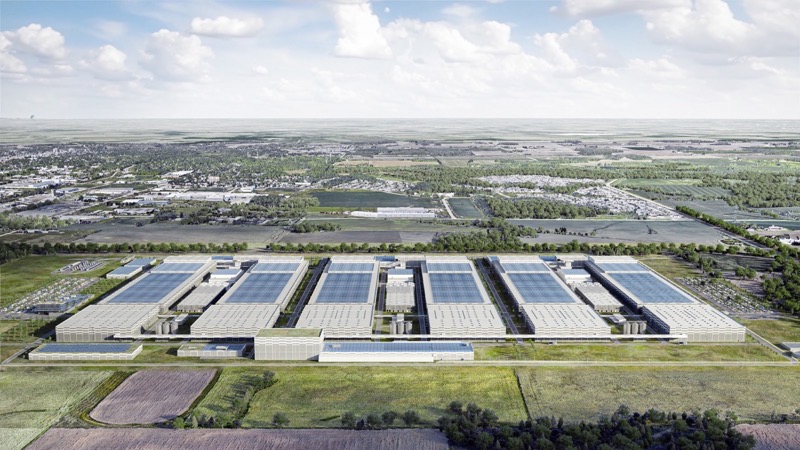
Canada Gives Over $13 Billion to Volkswagen for EV Battery Plant

Summary:
- Canada’s federal government offers $13 billion in subsidies to secure Volkswagen’s first electric vehicle battery gigafactory outside Europe, supporting the country’s position in the auto sector.
- The funding includes annual production subsidies and capital cost grants, aligning with financial incentives provided by the US’s Inflation Reduction Act.
- Despite criticism over the subsidy size, the government believes the factory’s economic impact, generating over $200 billion in value for Canada over 30 years, justifies the investment.
The federal government has agreed to provide subsidies potentially exceeding $13 billion over a decade to secure Volkswagen AG’s first electric vehicle battery gigafactory outside Europe, announced earlier this week, according to Bloomberg.
The funding, negotiated by Industry Minister François-Philippe Champagne, includes annual production subsidies and a capital cost grant, which matches what the German automaker could have received through the Inflation Reduction Act in the US.
The Volkswagen plant, built by its subsidiary PowerCo, was announced last month but details of the deal were revealed on Friday. The plant will have the ability to build enough battery cells for 1 million electric vehicles annually. The only other two PowerCo battery plants are in Germany and Spain.
This agreement exemplifies the efforts made by the US’s trading partners to match financial incentives introduced in President Joe Biden’s climate legislation last year. The factory, set to become Canada’s largest manufacturing site, is part of Volkswagen’s PowerCo unit.
Champagne emphasized that the financial aid is essential to maintain Canada’s position in the North American auto sector and its reputation for advanced manufacturing and clean technology.
“This is about us seizing generational opportunities,” Champagne said to Bloomberg in an interview. “This is about raising our level of ambition.”
The proposed factory, costing about $7 billion, will span an area equivalent to 350 football fields and create thousands of jobs in St. Thomas, Ontario. Champagne argued that the economic value of attracting one of the world’s largest automakers far outweighs the cost of the subsidies.

Canada’s production subsidies will remain in place as long as the Inflation Reduction Act is in force, with reductions corresponding to any US incentive reductions.
Furthermore, Canada is offering around $700 million in capital expense grants to Volkswagen through its Strategic Innovation Fund, with additional funding potentially coming from Ontario’s provincial government. That marks at least $13.7 billion granted to Volkswagen, money that could have gone to the federal government’s coffers.
🇨🇦 just attracted the largest auto investment in history!
With @VWGroup’s largest🔋plant ever, we’re:
👷♀️creating up to 30,000 well-paying jobs
🔋 building the most sustainable batteries in the world
🌱 making 🇨🇦 the green supplier of choice for generations to come ⬇️ https://t.co/sNv4Rc5gvJ
— François-Philippe Champagne (FPC) 🇨🇦 (@FP_Champagne) April 22, 2023
The Volkswagen deal raises questions about the level of financial aid available to other automakers and battery manufacturers. Last year, LG and Stellantis announced a $4 billion joint venture in Windsor, Ontario. Champagne acknowledged that the size of the subsidies means Canada must be selective, and the country can only realistically support a few battery plants.
“Taxpayers don’t have $13 billion to give to a multinational corporation,” said Franco Terrazzano, from the Canadian Taxpayers Federation to The Star, labelling the subsidies as “corporate welfare.”
“That money could be used to build more than a dozen new hospitals or lower taxes for Canadians that are struggling,” added Terrazzano.
The province of Ontario would contribute $500 million to Volkswagen, plus “hundreds of millions” to beef up local infrastructure including roads, and police and fire services near the plant.
Conservative leader Pierre Poilievre blasted the deal, sending off a letter to Yves Giroux, parliamentary budget officer, asking the fiscal watchdog to investigate the Volkswagen-Canada agreement.
“How much taxpayer financial support is being provided by the Government of Canada for each job that is expected to be created, both directly and indirectly?” wrote Poilievre.
“We believe it would be beneficial to calculate the expected impact on jobs in other sectors due to the fiscal measures needed to provide the necessary funds to subsidize these jobs,” said the Conservative leader.
Despite potential backlash, Prime Minister Justin Trudeau stands by the decision, with Champagne stating that Canadians will understand the necessity of the funding. The economic impact of the plant within its first five years is expected to equal the entirety of government funding, generating over $200 billion in value for Canada over 30 years.

